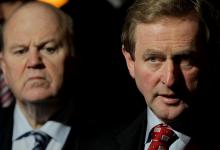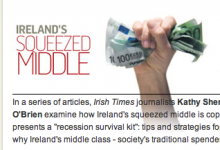A perfect storm
Poor old Michael Fish. When the sad day eventually arrives and the erstwhile BBC weatherman is whisked away to the great big spirit in the sky, passing through all those clouds, whose formations he spent so many long hours analysing, our Mick will be instantly recalled as ‘the weatherman who couldn’t even see a hurricane coming’. Fish’s failure, in 1987, to foresee what would be the worst storm to hit Britain for nearly 300 years will forever taint the thousands upon thousands of reasonably accurate predictions he made before and after his infamous faux pas.






